Nandita Das ko gussa kyun aata hai?
Actor and director, Nandita Das has always given her best to films that have provided her with a creative opportunity to share her concerns, and start conversations about things she cares for. Art is a means to an end for me, says the talented star
Nandita Das has an unwavering fan following among people who believe she does films that stir an alternate way of thinking and make a statement about burning issues of our times. She has never shied away from controversial issues and unconventional roles. Be it Fire, 1947 Earth, Bawandar, Kannathil Muthamittal, Deveeri, Maati Maay or Naalu Pennungal, her filmography reads like a strong thread that stitches together many significant narratives in Indian cinema.

Nandita Das
Anger is a powerful emotion
She does it again now with her latest film Albert Pinto Ko Gussa Kyun Aata Hai, a remake of Saeed Mirza’s cult classic from almost four decades ago. Nandita is quick to point out, however, in her interview with YSWeekender, that “Albert…” is a “conceptual remake”, which only takes the seed of the idea from the original starring Naseeruddin Shah, Shabana Azmi, and Smita Patil.

Made by an equally unconventional filmmaker - Soumitra Ranade – this time, Nandita says the director has the integrity to acknowledge and credit the original. “The film is completely Soumitra’s take on how he sees the country today and the angst of the youth.”
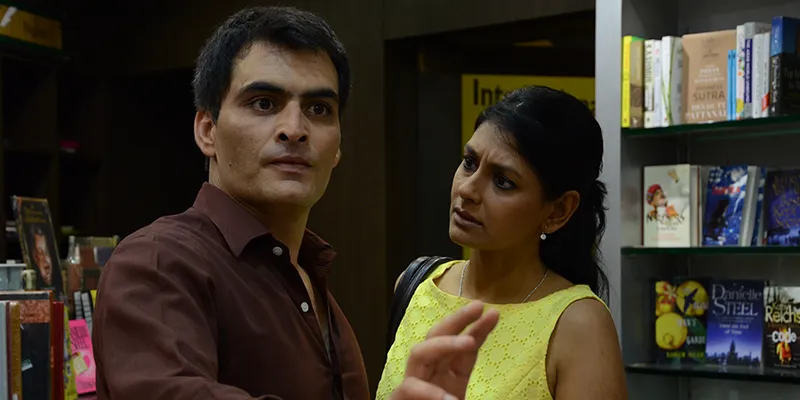
A still from Albert Pinto Ko Gussa Kyun Aata Hai
The timing of the film couldn’t have been better. Amid the Indian general elections and the deliberation and doubt among citizens of the country, audiences see an Albert who epitomises the anger felt by the common man in contemporary India – in the face of continued political, social, and cultural breakdown. Albert is angry at the hypocrisy and corruption. He is angry with the rulers of the country. Above all, he is angry with himself – for being a powerless spectator.

Like the protagonist, is Nandita also angry about what is happening around her? “There is no dearth of things that can make one angry,” Nandita says. “It is sad that we have normalised blatant inequality and inequity, and the divisive powers are further polarising us in the name of nationality, religion, caste, class, gender, sexual preference, and more.”
She admits that she used to justify her anger as she felt it was a response to injustice, but in the last seven to eight years she has increasingly begun to feel that anger adds to violence, which is destructive, and can never be justified.
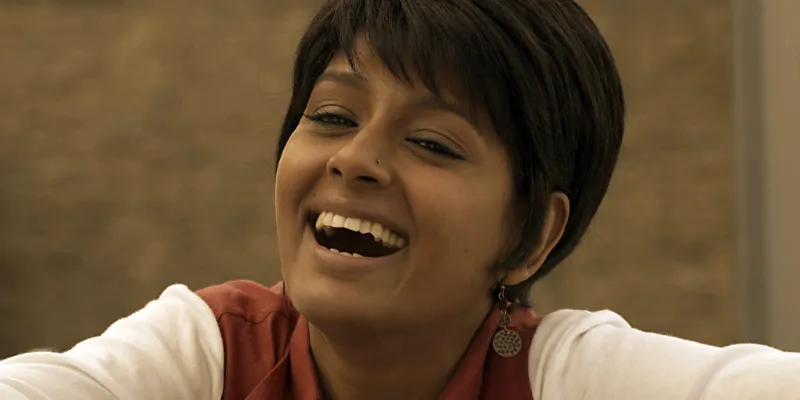
Nandita's debut in the film industry was with the critically acclaimed movie, Fire
“There are ways to channel one’s anger to find non-violent, democratic, and constitutional ways to protest and to express one’s discontentment. Having said that, there is anger in the world, especially among the youth who are suffering because of the world that has been handed to them. To feel anger is natural, but to find productive ways is a conscious choice if we want a more just and compassionate world. ‘Albert Pinto...' is a step in that direction," she says.
Nandita staunchly believes that the audience will connect with Albert’s anger and it will trigger a deeper reflection on their own angst and their will to change things for the better.
Also read: How Saket Modi, CEO and Co-founder of Lucideus, uses music and dance to stay rooted in reality
The Manto journey
The thinking actor has just returned from a very exciting tour of screening her film Manto at eight universities in the US, including Harvard, Yale, Columbia, MIT, Cornell, and others. She now wants to complete the Manto journey by bringing out a photo book, along with her experiences of making the film.
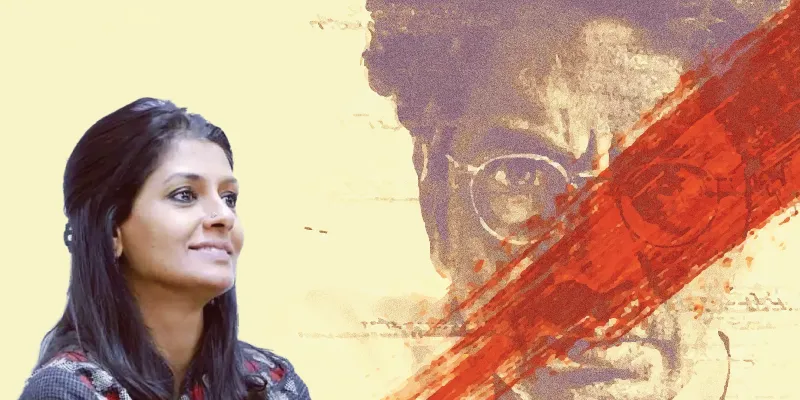
Nandita learnt many life lessons from the film, Manto
It took her six long and loving years to make the film on the life of the famous Urdu author, from inception to fruition. She has written, directed, and co-produced the film, which comes 10 years after her directorial debut Firaaq, which won accolades worldwide for its telling of the aftermath of the 2002 Gujarat violence. “For me there have been many learnings through the film Manto -- creative, emotional and even spiritual. I’ll probably do many other things in my life, but I think I will carry ‘Mantoiyat’ (which she sees as being free-spirited and courageous, as epitomised by Manto) all my life and in all that I do,” Nandita says.
In the director's chair
For someone so successful, well-recognised and respected in her field, Nandita says she never wanted to be an actor or director.
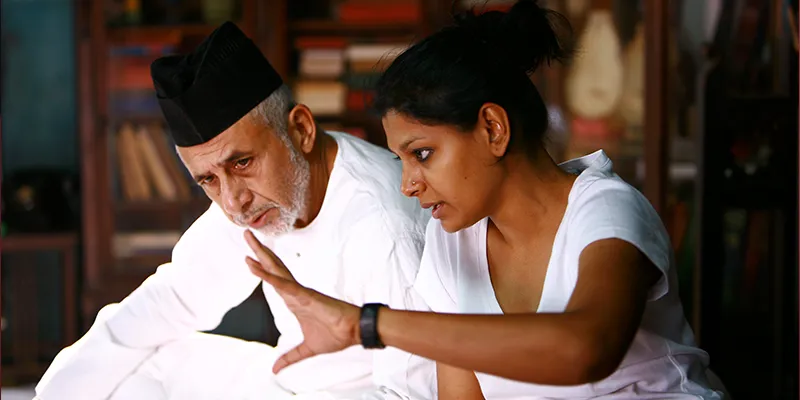
Nandita Das directing Naseeruddin Shah in her first directorial venture Firaaq

“Both acting and directing have come into my life by accident. That said, films have provided me with a creative opportunity to share my concerns and I have used the platform to have conversations about things that I care for. All I know is that I wanted to use every available means to share and connect. For me, art remains a means to an end. I am much more of a journey person so I don’t feel the pressure of reaching anywhere in particular. When I did Fire as my first film, I didn’t even know that there was going to be a second, and now I’ve done 40 films in 10 different languages!”
While many actors and filmmakers are directing their attention to creating web-series, where they find infinite freedom, Nandita admits that she was a bit resistant earlier of the medium “as I haven’t watched many, but I’m more open to it now”.
Some stories lend themselves more naturally to a series than films, she concedes. “I also realise that this platform is more accessible and is being watched in living rooms, in cars, and in trains. I still enjoy watching films in the darkness of a theatre, which is both, an individual and a collective experience. In the end, both have their own advantages and challenges, so I would let the content decide the medium,” is how she presents her argument.
The judge and the jury
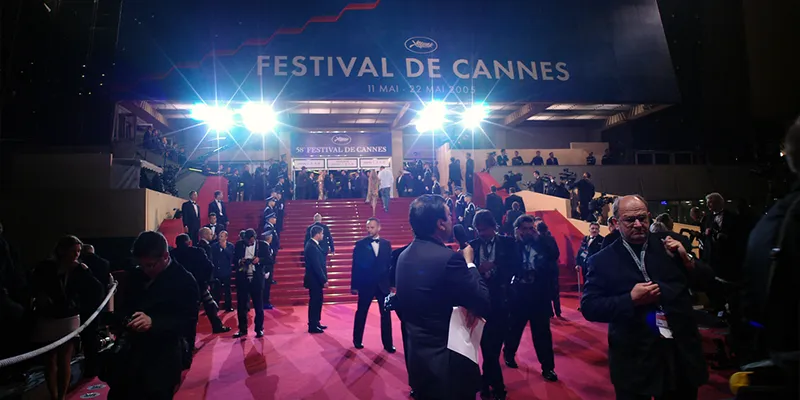
Nandita has been a part of the jury at the Cannes Film Festival twice
Having been on the jury at the Cannes Film Festival twice – in 2005 and 2013 – she’s had an insider’s view of way things work. What does she have to say then, to why Indian films never really make it big at such festivals? There is really no government or independent body in our country that supports, nurtures and distributes alternative cinema, unlike many countries the world over, stresses Nandita.
“Therefore, even if there are good scripts and films, often they don’t have access to festivals like Cannes. Even within the country, our regional films, where a lot of good work is happening, are not treated with the merit they deserve.”
Independent films suffer a great deal in marketing and distribution as there is little money to compete with big Bollywood films that occupy much of the media and marketing space, she elaborates again.
“Hence, they end up at the mercy of the distributor’s biases who label such films as ‘niche’ or ‘arthouse’, not giving a level playing field to them. After all, every filmmaker wants to reach the widest audience possible and festivals at least provide independent films a platform to garner attention towards the release of the film along with a discerning audience,” she says.

Coming back to her latest release, she says: “I did the film ‘Albert…’ for nostalgia, as the original was an iconic film, and the good thing is Saeed Mirza has given Soumitra his full support. So, it’s our tribute to it and I equally did it for Soumitra, who has been a friend for over a decade. Just as in Manto, many supported me by doing small cameos and working for free; I am just doing my bit to add to the cycle of goodwill.”
She says she is a bit spoilt for choice at the moment, since she’s getting a lot of projects, both as an actor and a director. “I have managed to narrow it down to three stories that I am very interested in telling, along with two acting assignments that are also exciting. Can’t reveal much more than this for now, but rest assured, it won’t be another 10 years before I act or direct!”
Also read: Six tips on making a perfect summer garden from landscape designer, Veena Nanda







